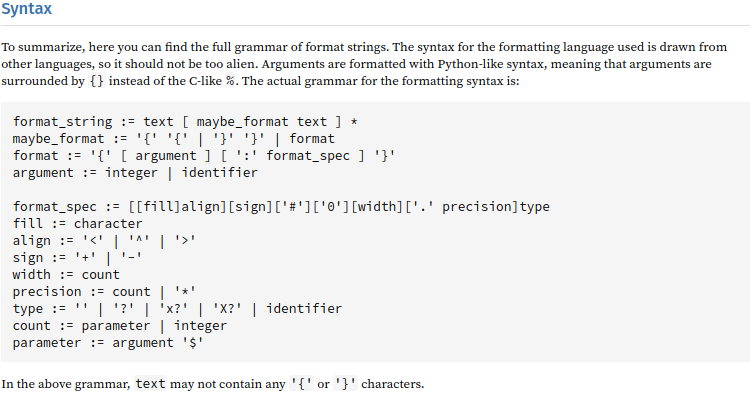Inline methods of Path and OsString
These methods are not generic, and therefore aren't candidates for cross-crate inlining without an `#[inline]` attribute.
More clear documentation for NonNull<T>
Rephrase and hopefully clarify the discussion of covariance in `NonNull<T>` documentation.
I'm very much not an expert so someone should definitely double check the correctness of what I'm saying. At the same time, the new language makes more sense to me, so hopefully it also is more logical to others whose knowledge of covariance basically begins and ends with the [Rustonomicon chapter](https://doc.rust-lang.org/nomicon/subtyping.html).
Related to #48929.
Change branching in `iter.skip()`
Optimize branching in `Skip`, which was brought up in #80416.
This assumes that if `next` is called, it's likely that there will be more calls to `next`, and the branch for skip will only be hit once thus it's unlikely to take that path. Even w/o the `unlikely` intrinsic, it compiles more efficiently, I believe because the path where `next` is called is always taken.
It should be noted there are very few places in the compiler where `Skip` is used, so probably won't have a noticeable perf impact.
[New impl](https://godbolt.org/z/85rdj4)
[Old impl](https://godbolt.org/z/Wc74rh)
[Some additional asm examples](https://godbolt.org/z/feKzoz) although they really don't have a ton of difference between them.
Add doc aliases for memory allocations
This patch adds doc aliases for various C allocation functions, making it possible to search for the C-equivalent of a function and finding the (safe) Rust counterpart:
- `Vec::with_capacity` / `Box::new` / `vec!` -> alloc + malloc, allocates memory
- `Box::new_zeroed` -> calloc, allocates zeroed-out memory
- `Vec::{reserve,reserve_exact,try_reserve_exact,shrink_to_fit,shrink_to}` -> realloc, reallocates a previously allocated slice of memory
It's worth noting that `Vec::new` does not allocate, so we don't link to it. Instead people are probably looking for `Vec::with_capacity` or `vec!`. I hope this will allow people comfortable with the system allocation APIs to make it easier to find what they may be looking for.
Thanks!
Enforce statically that `MIN_NON_ZERO_CAP` is calculated at compile time
Previously, it would usually get computed by LLVM, but this enforces it. This removes the need for the comment saying "LLVM is smart enough".
I don't expect this to make a performance difference, but I do think it makes the performance properties easier to reason about.
Document why not use concat! in dbg! macro
Original title: Reduce code generated by `dbg!` macro
The expanded code before/after: <https://rust.godbolt.org/z/hE3j95>.
---
We cannot use `concat!` since `file!` could contains `{` or the expression is a block (`{ .. }`).
Using it will generated malformed format strings.
So let's document this reason why we don't use `concat!` macro at all.
Expand docs on Iterator::intersperse
Unstable feature in #79524. This expands on the docs to bring them more in line with how other methods of `Iterator` are demonstrated.
Fix broken links with `--document-private-items` in the standard library
As it was suggested in #81037 `SpecFromIter` is not
in the scope and therefore we get a warning when we try to
do document private intems in `rust/library/alloc/`.
This addresses #81037 by adding the trait in the scope as ```@jyn514```
suggested and also adding an `allow(unused_imports)` flag so that
the compiler does not complain, Since the trait is not used
per se in the code, it's just needed to have properly documented
docs.
Improve grammar in documentation of format strings
The docs previously were
* using some weird `<` and `>` around some nonterminals
* _correct me if these **did** have any meaning_
* using of a (not explicitly defined) `text` nonterminal that didn’t explicitly disallow productions containing `'{'` or `'}'`
* incorrect in not allowing for `x?` and `X?` productions of `type`
* unnecessarily ambiguous, both
* allowing `type` to be `''`, and
* using an optional `[type]`
* using inconsistent underscore/hyphenation style between `format_string` and `format_spec` vs `maybe-format`
_Rendered:_

_(current docs: https://doc.rust-lang.org/nightly/std/fmt/#syntax)_
```@rustbot``` modify labels: T-doc
Visualize vector while differentiating between stack and heap.
Inspired by cheats.rs, as this is probably the first place beginner go,
they could understand stack and heap, length and capacity with this. Not
sure if adding this means we should add to other places too.
Superseeds #76066
std: Update wasi-libc commit of the wasm32-wasi target
This brings in an implementation of `current_dir` and `set_current_dir`
(emulation in `wasi-libc`) as well as an updated version of finding
relative paths. This also additionally updates clang to the latest
release to build wasi-libc with.
BufWriter: Provide into_raw_parts
If something goes wrong, one might want to unpeel the layers of nested
Writers to perform recovery actions on the underlying writer, or reuse
its resources.
`into_inner` can be used for this when the inner writer is still
working. But when the inner writer is broken, and returning errors,
`into_inner` simply gives you the error from flush, and the same
`Bufwriter` back again.
Here I provide the necessary function, which I have chosen to call
`into_raw_parts`.
I had to do something with `panicked`. Returning it to the caller as
a boolean seemed rather bare. Throwing the buffered data away in this
situation also seems unfriendly: maybe the programmer knows something
about the underlying writer and can recover somehow.
So I went for a custom Error. This may be overkill, but it does have
the nice property that a caller who actually wants to look at the
buffered data, rather than simply extracting the inner writer, will be
told by the type system if they forget to handle the panicked case.
If a caller doesn't need the buffer, it can just be discarded. That
WriterPanicked is a newtype around Vec<u8> means that hopefully the
layouts of the Ok and Err variants can be very similar, with just a
boolean discriminant. So this custom error type should compile down
to nearly no code.
*If this general idea is felt appropriate, I will open a tracking issue, etc.*